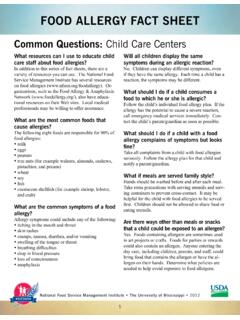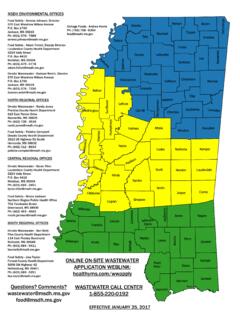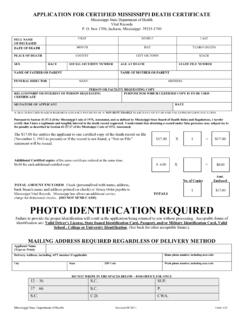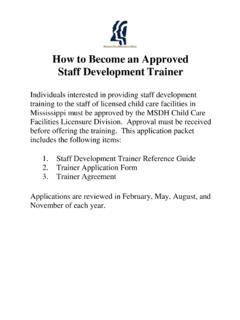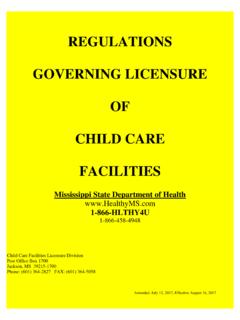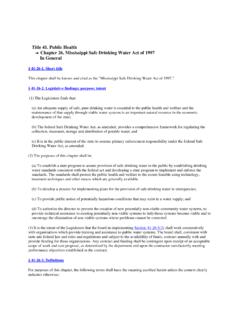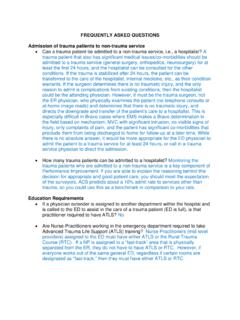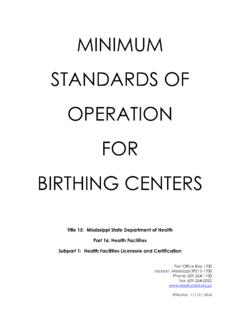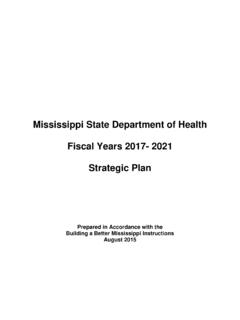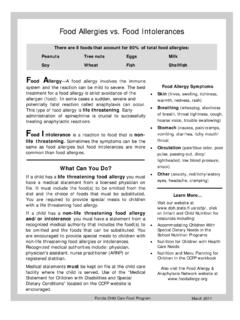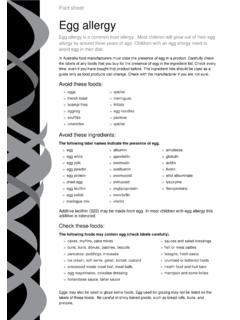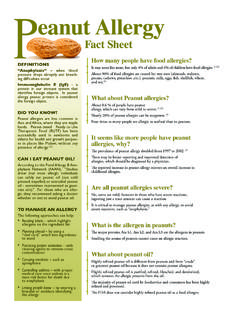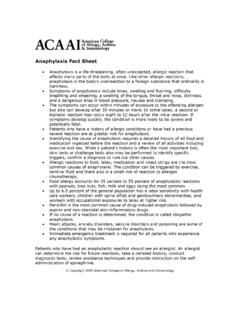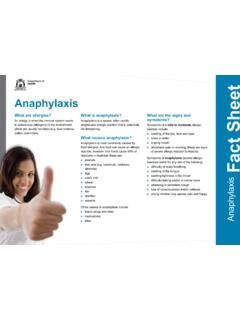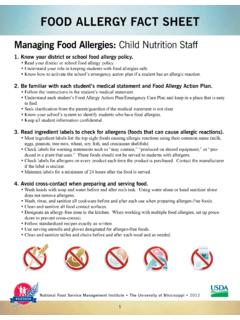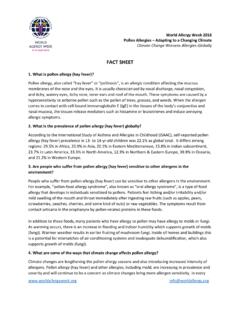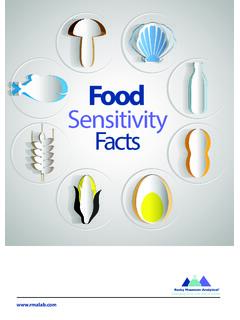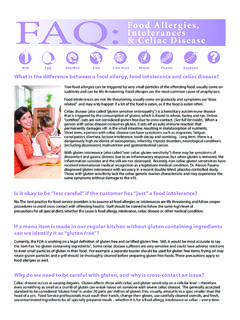Transcription of Food Allergy FAct Sheet - Mississippi
1 food Allergy fact SheetNational food Service Management Institute The University of Mississippi 201211. create a food Allergy policy for your center. Form a food Allergy team to write a food Allergy policy. Develop an emergency plan specifically for your center(s). Notify parents about any reactions or exposures to an allergen. If outside foods are allowed, limit to pre-packaged foods with complete ingredient lists. Check all food labels for allergens. Require all children to wash their hands when entering the center and before and after meals and snacks to prevent cross-contact. Keep information about children with food allergies create an individual food Allergy plan for each child with a food Allergy . Obtain completed medical statement from parents/guardians (forms available from your sponsoring orga-nization).
2 Talk with parents/guardians if you need clarification. Work with parents to create a plan to treat a reaction if it occurs. Keep the plan where you can refer to it as needed. Obtain any necessary medications from parents. Be sure you understand when and how to give each medica-tion. Keep medications in a location that is secure. Work with parents to create an affordable plan using the menus and resources that you take actions to avoid exposure to food allergens. Wash hands with soap and water before and after each task. Using water alone or hand sanitizer alone does not remove food allergens. Wash, rinse, and sanitize all utensils and cookware after each use. Wash, rinse, and sanitize food contact surfaces before and after each use. Use designated cutting boards and designated work areas to prepare food for children with food allergies.
3 Store foods so that Allergy -safe foods do not come in contact with other foods. Clean and sanitize tables and chairs before and after meals and snacks. Create a way for staff to be able to identify children with food allergies. Prevent trading or sharing food , food utensils, or food containers. Avoid foods that a child is allergic to in art projects or cooking activities. Limit food to specific areas in the center. Ask parents to approve items such as body lotions, sunscreens, shampoos, and creams, as some may con-tain allergenic ingredients that could be ingested. 4. train staff about food allergies. Train staff on the center s food Allergy policy and each child s individual food Allergy plan. Train staff on symptoms of an allergic reaction. Instruct staff on when and how to give medications.
4 Ensure confidentiality of children s medical information. Managing food Allergies: Child Care Centers food Allergy fact SheetNational food Service Management Institute The University of Mississippi 201225. train staff to read food labels for allergens. Most food labels list the top eight allergenic foods using their common name (milk, eggs, peanuts, tree nuts, wheat, soy, fish, and crustacean shellfish). Check labels for warning statements such as may contain, produced on shared equipment, or pro-duced in a plant that uses. These foods should not be served to children with allergies. Check ingredient labels for allergens on every product each time food is purchased. This project has been funded at least in part with Federal funds from the Department of Agriculture, food and Nutrition Service through an agreement with the National food Service Management Institute at The University of Mississippi .
5 The contents of this publication do not necessarily reflect the views or policies of the Department of Agriculture, nor does mention of trade names, commercial products, or organizations imply endorsement by the University of Mississippi is an EEO/AA/TitleVI/Title IX/Section 504/ADA/ADEA accordance with Federal law and Department of Agriculture policy, this institution is prohibited from discriminating on the basis of race, color, national origin, sex, age, or disability. To file a complaint of discrimination, write USDA, Director, Office of Civil Rights; Room, 326-W, Whitten Building, 1400 Independence Avenue, SW, Washington, DC 20250-9410 or call (202) 720-5964 (voice and TDD). USDA is an equal opportunity provider and employer. 2012, National food Service Management Institute, The University of MississippiExcept as provided below, you may freely use the text and information contained in this document for non-profit or educational use with no cost to the participant for the training providing the following credit is included.
6 These materials may not be incorporated into other websites or textbooks and may not be photographs and images in this document may be owned by third parties and used by The University of Mississippi under a licensing agreement. The University cannot, therefore, grant permission to use these images. For More InformationAmerican Academy of Allergy Asthma & for Disease Control and Prevention Allergy & Anaphylaxis Allergy and Nutrition Information Center Insight (Web site sponsored by International food Information Council Foundation) food Service Management Institute Institute of Allergy and Infectious Diseases Resource Center for Health and Safety in Child Care and Early Education Nutrition Department of Agriculture
